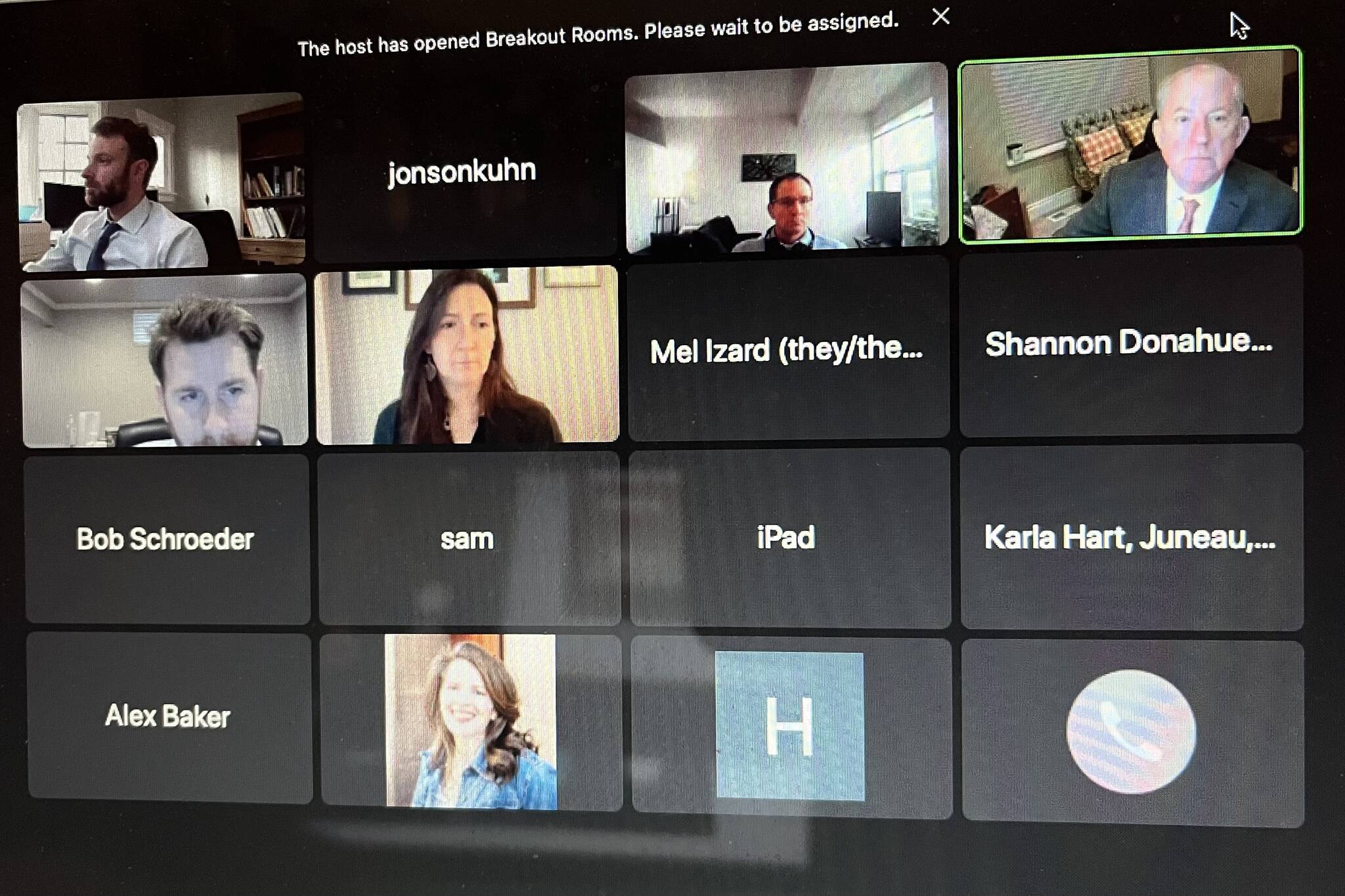A lawyer for Southeast Alaska Conservation Council argued Friday during a Zoom hearing before the National Labor Relations Board that the board does not have jurisdiction in SEACC employees’ attempt to unionize.
“The scope and focus of our work are entirely focused on matters of concern for citizens of Southeast Alaska,” said Gregory Fisher with Littler Mendelson P.C., a law firm which among other cases has represented Starbucks in efforts opposing the formation of unions.
“Regardless of whether the board concluded there was statutory jurisdiction, we would urge the board to decline jurisdiction on discretionary grounds but for reasons that I’ll go into greater detail in our post-hearing brief, I don’t believe the quality in nature and scope of our work qualifies for statutory jurisdiction under the commerce clause that law has developed, particularly in recent years.”
[SEACC entangled in union dispute]
However, Will Reinken, an attorney representing the employees who want recognition of SEACC United, argued that it would be appropriate for the NRLB to make a decision in the case.
“The union asserts there is sufficient contacts with interstate commerce, sufficient revenue and it’s not clear to the union that the employer does not have substantial interactions outside of Alaska, so we believe that National Labor Relations Board not only has jurisdiction but that it should exercise it in this case,” Reinken said.
The hearing is the latest in a union dispute between SEACC and non-management employees who in early December petitioned the NLRB after SEACC United was not voluntarily recognized.
Aside from closing and opening statements from attorneys, the hearing was generally a dry examination of what SEACC does, its operations and what its revenues consist of.
During the hearing, SEACC Executive Director Meredith Trainor fielded questions from both Fisher and Reinken. Trainor clarified who SEACC was as a company, what they do and how they operate, as well as provided specifics regarding financial matters, such as the main sources in which SEACC receives revenue, including grants, donations, merchandising and cash flow projections.
Reinken also asked Trainor questions regarding general revenue for SEACC, concluding SEACC is projecting over $1 million in revenue for the fiscal year in 2023.
Labor Relations Adjudicator/Mediator Michael Snyder, who is presiding over the hearing, concluded by saying the regional director will issue a decision in this matter as soon as practical, and will immediately translate the documents to the parties and their designated representatives.
The deadline for post-hearing briefs was extended from Jan. 27 until Feb. 3 at the employer’s request.
• Contact reporter Jonson Kuhn at jonson.kuhn@juneauempire.com.

